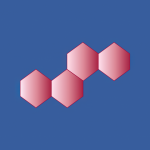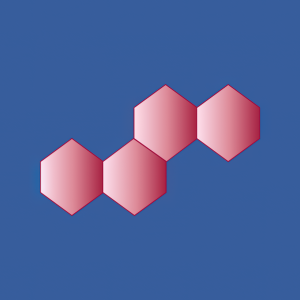Welcome to our dedicated page for Corcept Therapeutics news (Ticker: CORT), a resource for investors and traders seeking the latest updates and insights on Corcept Therapeutics stock.
Corcept Therapeutics Incorporated (NASDAQ: CORT) is a leader in developing cortisol-modulating therapies for metabolic, oncologic, and neuropsychiatric disorders. This page serves as the definitive source for verified news and regulatory updates about the company.
Access real-time press releases, clinical trial developments, and financial disclosures essential for tracking CORT's progress in pharmaceutical innovation. Our curated collection includes updates on GR antagonist research, FDA communications, and partnership announcements.
Key content categories include quarterly earnings reports, drug approval milestones, scientific conference presentations, and strategic collaborations. Investors will find timely information about Korlym® commercialization and pipeline advancements across 300+ proprietary compounds.
Bookmark this page for direct access to Corcept's official communications. Check regularly for updates on hypercortisolism treatments, oncology trials, and novel therapeutic applications of glucocorticoid receptor science.
Corcept (NASDAQ: CORT) presented late-breaking Phase 3 ROSELLA data at ESMO 2025 showing relacorilant plus nab-paclitaxel improved outcomes in platinum-resistant ovarian cancer, including patients with prior PARP inhibitor (PARPi) exposure.
Key results: prior PARPi subgroup PFS HR 0.60 (p=0.0035), progressed-on-PARPi subgroup PFS HR 0.56 (p=0.0046) with median PFS 7.36 months. ROSELLA met primary PFS endpoint HR 0.70 (p=0.0076) and interim OS favored the combination HR 0.69 (p=0.0121). Safety in PARPi subgroups was comparable to nab-paclitaxel alone. Corcept also expanded the Phase 2 BELLA trial to three arms; initial BELLA results expected in late 2026.
Corcept (NASDAQ: CORT) submitted a Marketing Authorization Application (MAA) to the European Medicines Agency for relacorilant to treat platinum-resistant ovarian cancer on October 14, 2025.
The submission is based on positive results from the pivotal Phase 3 ROSELLA and Phase 2 trials where relacorilant plus nab-paclitaxel improved progression-free and overall survival versus nab-paclitaxel alone, with no biomarker selection required. Safety in combination was reported as comparable to nab-paclitaxel monotherapy. The U.S. FDA is also reviewing an application, with a PDUFA target action date of July 11, 2026.
Corcept Therapeutics (NASDAQ: CORT) will present new late-breaking data from its pivotal Phase 3 ROSELLA trial at the 2025 ESMO Annual Meeting. The presentation will focus on results of relacorilant plus nab-paclitaxel treatment in platinum-resistant ovarian cancer patients who were previously treated with PARP inhibitors - a group with particularly poor prognosis.
The trial represents a significant international collaboration, involving major oncology research groups including GOG-F, ENGOT, APGOT, LACOG, and ANZGOG. The presentation (LBA45) is scheduled for October 19, 2025, at 10:15 AM CEST during the gynaecological cancers mini oral session.
Corcept Therapeutics (NASDAQ: CORT) announced that the FDA has accepted its New Drug Application (NDA) for relacorilant in treating platinum-resistant ovarian cancer, with a PDUFA date set for July 11, 2026.
The NDA submission is supported by positive results from the Phase 3 ROSELLA and Phase 2 trials, where relacorilant combined with nab-paclitaxel demonstrated improved progression-free and overall survival compared to nab-paclitaxel alone. Notably, the treatment showed favorable safety outcomes, with adverse events comparable to the control group and no biomarker selection requirement.
Corcept Therapeutics (NASDAQ: CORT) reported strong Q2 2025 financial results with revenue of $194.4 million, up from $163.8 million in Q2 2024. The company modified its 2025 revenue guidance to $850-900 million due to specialty pharmacy capacity constraints amid surging demand. Net income was $35.1 million with cash and investments of $515.0 million.
Key developments include two NDAs in progress - one for hypercortisolism and another for platinum-resistant ovarian cancer, with relacorilant's PDUFA date set for December 30, 2025. The ROSELLA trial results were published in The Lancet, while the DAZALS trial showed an 84% reduction in death risk for ALS patients receiving dazucorilant. The company repurchased $115.4 million of common stock during Q2.
Corcept Therapeutics (NASDAQ: CORT) has scheduled its second quarter 2025 financial results announcement and corporate update for July 31, 2025. The company will host a conference call at 5:00 p.m. Eastern Time (2:00 p.m. Pacific Time) on the same day.
Participants must pre-register for the conference call to receive their unique access PIN and dial-in number. A listen-only webcast option will also be available, and a replay of the call will be accessible through the Investors / Events section of Corcept.com.
Corcept Therapeutics (NASDAQ: CORT) has submitted a New Drug Application (NDA) to the FDA for relacorilant, its selective cortisol modulator, to treat platinum-resistant ovarian cancer. The submission is supported by positive data from Phase 3 ROSELLA and Phase 2 trials, where relacorilant combined with nab-paclitaxel showed improved progression-free and overall survival compared to nab-paclitaxel alone.
The drug demonstrated a favorable safety profile, with adverse events comparable to nab-paclitaxel monotherapy. This marks Corcept's second NDA before the FDA, alongside relacorilant for hypercortisolism. The company is preparing for immediate commercial availability following potential regulatory approval.
Corcept Therapeutics (NASDAQ: CORT) announced significant results from its CATALYST trial of Korlym® in patients with hypercortisolism and difficult-to-control type 2 diabetes. The trial met its primary endpoint with patients receiving Korlym showing a 1.47% decrease in HbA1c compared to 0.15% in placebo group.
The study revealed that 24% of patients with difficult-to-control type 2 diabetes had hypercortisolism. Secondary endpoints were also met, with Korlym patients showing significant reductions in body weight (5.1 kg) and waist circumference (5.1 cm). Notably, patients receiving 900mg of Korlym demonstrated a 2.01% improvement in HbA1c.
The CATALYST trial, involving 1,057 patients across 36 U.S. sites, represents the largest and most rigorous study of its kind, with results simultaneously published in Diabetes Care.


